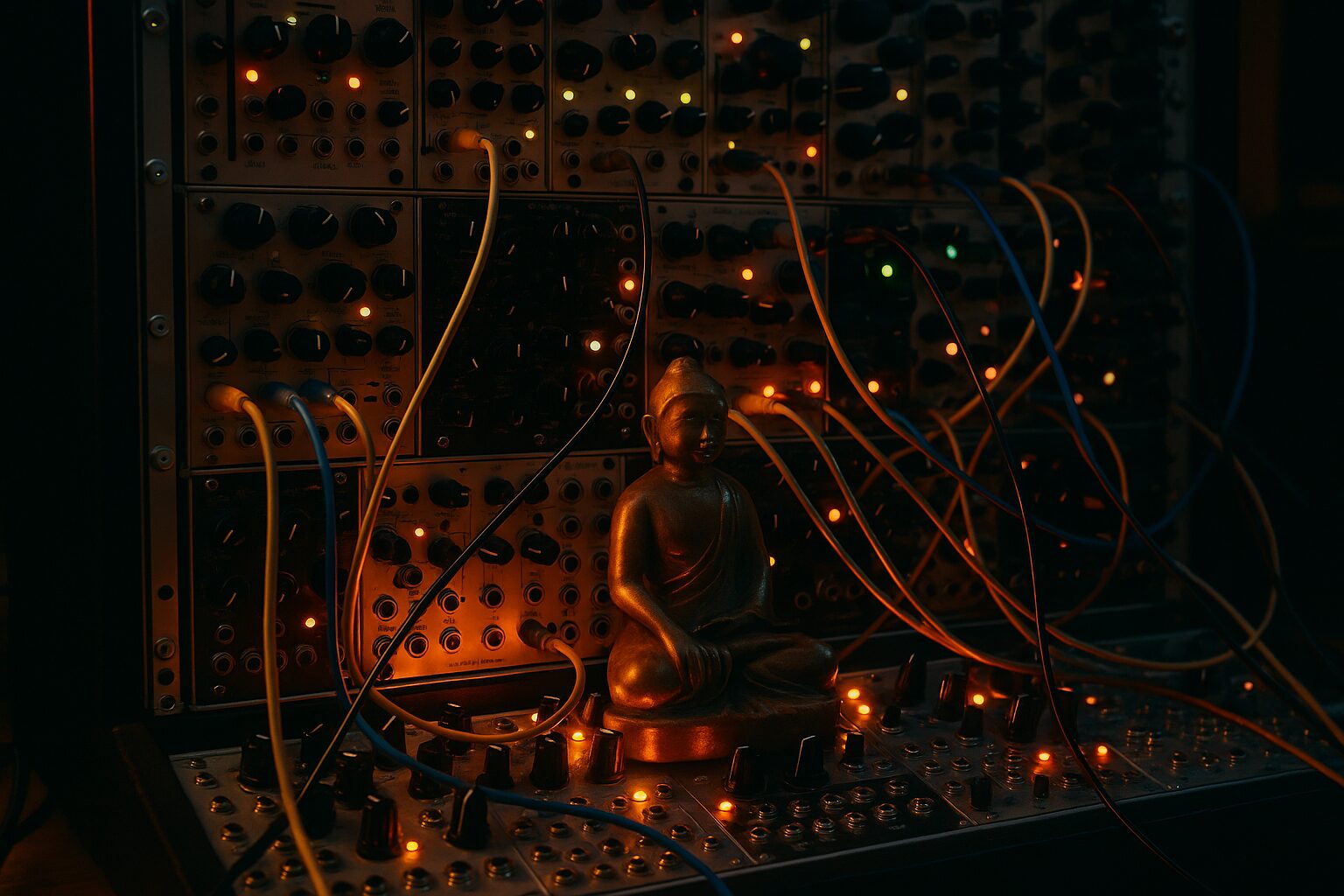Building God in the Style of Modular Synths
Between Synth Rack and Shrine
Somewhere between a synth rack and a shrine, there’s a low hum.
It’s not just feedback—
it’s reverence.
A new breed is emerging:
sound designers,
circuit mystics,
techno-heretics.
They don’t worship through prayer.
They worship through patch cables.
What Is a Machine Pantheon?
Machine Pantheons are modular synthesizer setups treated not as tools, but as living spiritual entities.
For their creators and devotees:
- Every oscillator is a god-form.
- Every low-frequency drone is a sacred vibration.
- Every patch is a prayer.
Their studios are sound temples.
Their rituals are built from LFOs, filters, sequencers, and feedback loops.
Tools as Totems
Forget rosaries. Forget malas.
Here, the sacred objects include:
- Eurorack modules, hand-soldered like relics
- Patch cables, tangled like ritual knots
- LEDs, blinking like electric incense
- User manuals, annotated with poetry, awe, and existential dread
This isn’t gear—it’s gnosis.
Rituals of the Patch
We visit underground sound temples, where music isn’t composed—
it’s summoned.
A single patch might take days, even weeks, to build.
And when it finally sings,
it doesn’t sound like a track.
It sounds like a minor deity—
built from circuitry, impulse, and breathless voltage.
Devotees speak in tongues:
- Gear jargon
- Signal flow diagrams
- Sonic revelation
And they speak with the intensity of medieval monks—on mushrooms.
Is It Art? Is It Ritual? Is It Madness?
Yes.
This is:
- Audiophile mysticism
- Post-industrial prayer
- Sacramental sound design
These creators aren’t trying to recreate the past.
They’re not trying to escape into the future.
They’re doing something stranger:
Listening for the divine in feedback loops, bass pulses, and impossible waveforms.
The God That Listens Back
In a world flooded with noise,
where most gods have gone silent—
A self-modulating synth might be the only one left who still listens.
